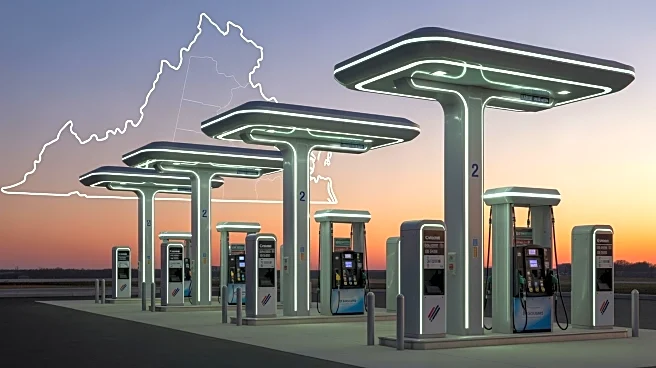What's Happening?
RoadFlex, a Visa-backed fleet card and expense management platform, has partnered with Refuel to expand fueling options for commercial and government fleets. This collaboration adds over 250 new fueling sites
to RoadFlex’s discount network, providing fleet operators with increased choice and convenience. The partnership integrates into RoadFlex’s Fuel Risk Management Platform, offering purchase controls, audit-ready reporting, and advanced fuel analytics. Additionally, Virginia has opened a new propane autogas refueling station near Richmond International Airport, supporting local fleets, Henrico County Schools’ buses, and Park ‘N Go shuttles. Propane autogas vehicles significantly reduce emissions and operating costs compared to diesel. NCR Voyix Corporation has also partnered with Corpay to accept fleet cards for commercial fuel transactions at NCR Voyix’s cloud-native POS systems, supporting trucking fleets across more than 18,000 fuel stations.
Why It's Important?
These developments are crucial for the commercial fleet industry as they offer enhanced fueling options, cost savings, and environmental benefits. RoadFlex’s expansion provides fleet operators with more choices and savings, which can lead to increased operational efficiency. Virginia’s investment in propane autogas infrastructure supports cleaner transportation, benefiting communities by reducing emissions and lowering costs. The partnership between NCR Voyix and Corpay enhances digital commerce and payment solutions for fuel operators, potentially leading to more streamlined and efficient transactions. These initiatives collectively contribute to a more sustainable and economically viable fleet industry, impacting fleet operators, local communities, and the environment positively.
What's Next?
The partnerships and infrastructure developments are expected to continue expanding, with NCR Voyix planning to roll out its next-generation commercial solutions in 2026. This will likely enhance fleet card acceptance and strengthen customer propositions. As more fleets adopt cleaner energy solutions like propane autogas, further investments in infrastructure and technology are anticipated. Stakeholders, including fleet operators, local governments, and environmental groups, may continue to advocate for and invest in sustainable transportation solutions, driving further innovation and adoption in the industry.
Beyond the Headlines
The shift towards alternative fuels and advanced payment solutions in the commercial fleet industry highlights broader trends in sustainability and digital transformation. These initiatives not only reduce emissions but also reflect a growing commitment to environmental responsibility and technological advancement. The integration of digital commerce and payment technologies in fuel transactions represents a significant step towards modernizing the industry, potentially influencing other sectors to adopt similar innovations.








